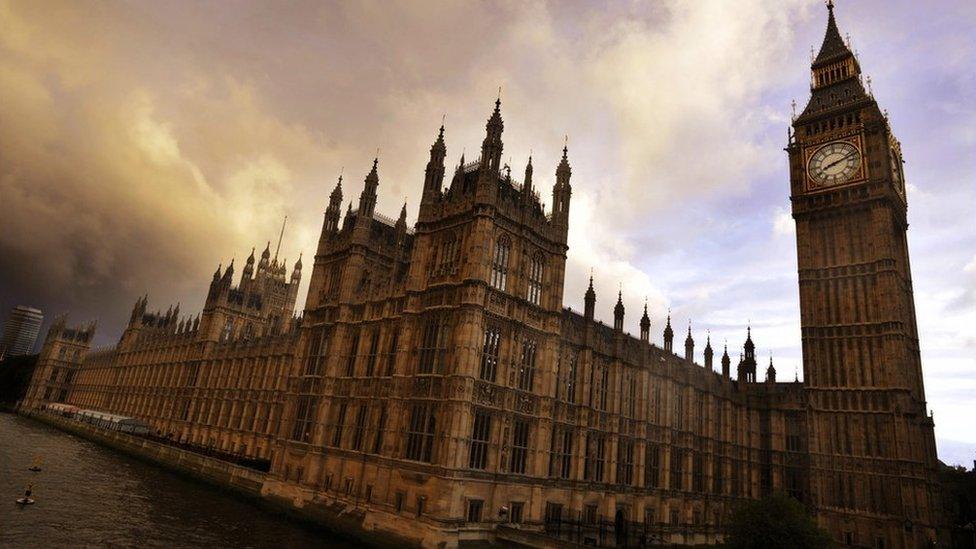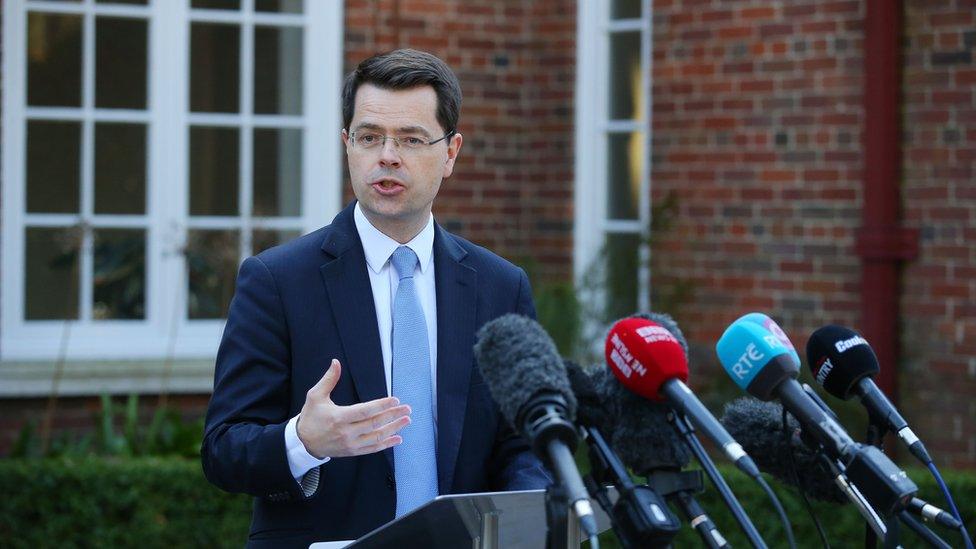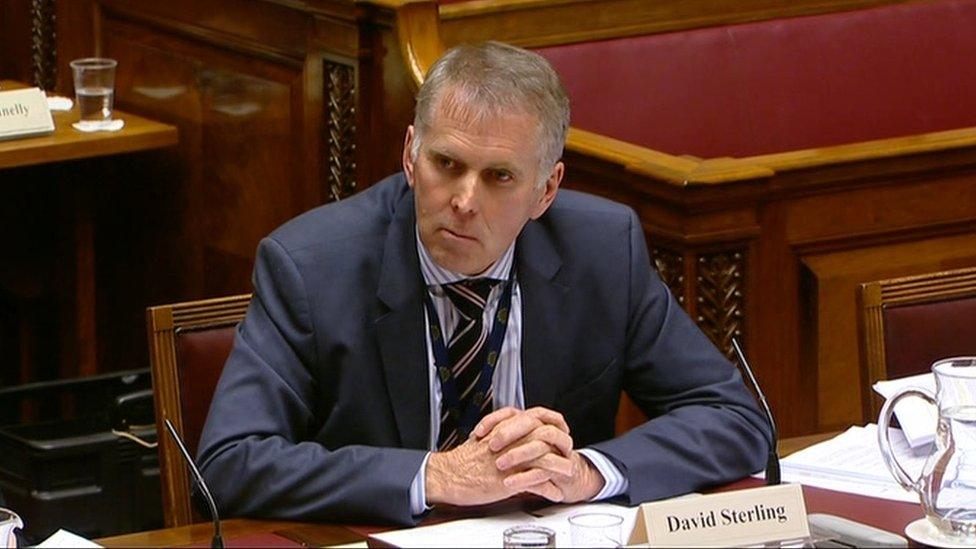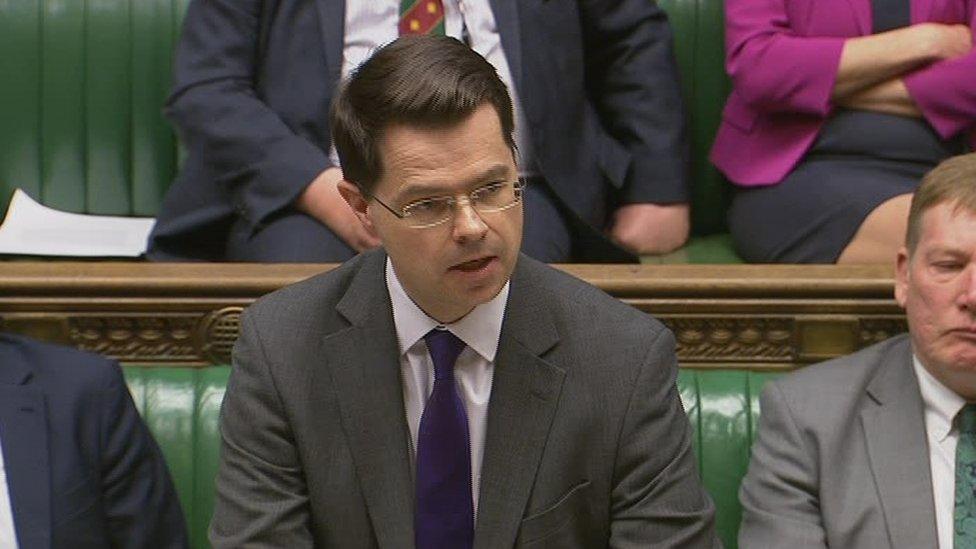Northern Ireland budget 'could be passed by House of Commons'
- Published

A Northern Ireland budget could be passed at Westminster
The House of Commons could pass a Northern Ireland budget, Stormont sources have suggested.
The executive failed to agree a budget for the new financial year and civil servants will begin using emergency financial powers on Wednesday.
However, officials believe that is only sustainable for a few months at most.
Welfare reform is being cited as a precedent where Westminster legislated for Northern Ireland despite welfare being a devolved power.
A similar move would allow a budget to be passed without the secretary of state having to impose overall direct rule.
James Brokenshire has already said he will ask Westminster to pass legislation to allow rates bills to be sent out in Northern Ireland.
The political crisis means the executive has not set its part of the bill, known as the regional rate.

James Brokenshire has already said he will ask Westminster to pass legislation to allow rates bills to be sent out in Northern Ireland
Local councils have already set their part of the bill, known as the district rate.
Mr Brokenshire said if there is no political deal by 18 April, he will bring forward legislation to enable a regional rate to be set.
Rates are property taxes paid by households and businesses that raise annual revenue of £1.2bn.
Payments over 10 months
Normally rates payments are spread over 10 months, from April to January.
The delay could mean this year the period could instead run from May to February or June to March.
Councils receive their share of rates revenue monthly via the Department of Finance.

David Sterling, permanent secretary at the Deparment of Finance, will shortly become the man holding the purse strings at Stormont
The department insists this will still happen from April - even if rates bills are not issued - so council services will not be impacted.
Direct debit payments - currently made by about 270,000 people or businesses - will not be taken until after bills have been dispatched.
Accruing resources
Meanwhile it is understood that the Department of Finance has received legal advice that it can spend so-called "accruing resources" as part of emergency budget procedures.
This is money that comes to departments from sources other than the block grant and includes things like planning fees and EU farm subsidies.
There had doubt about whether officials had the legal authority to spend that money.
- Published28 March 2017

- Published16 January 2017
